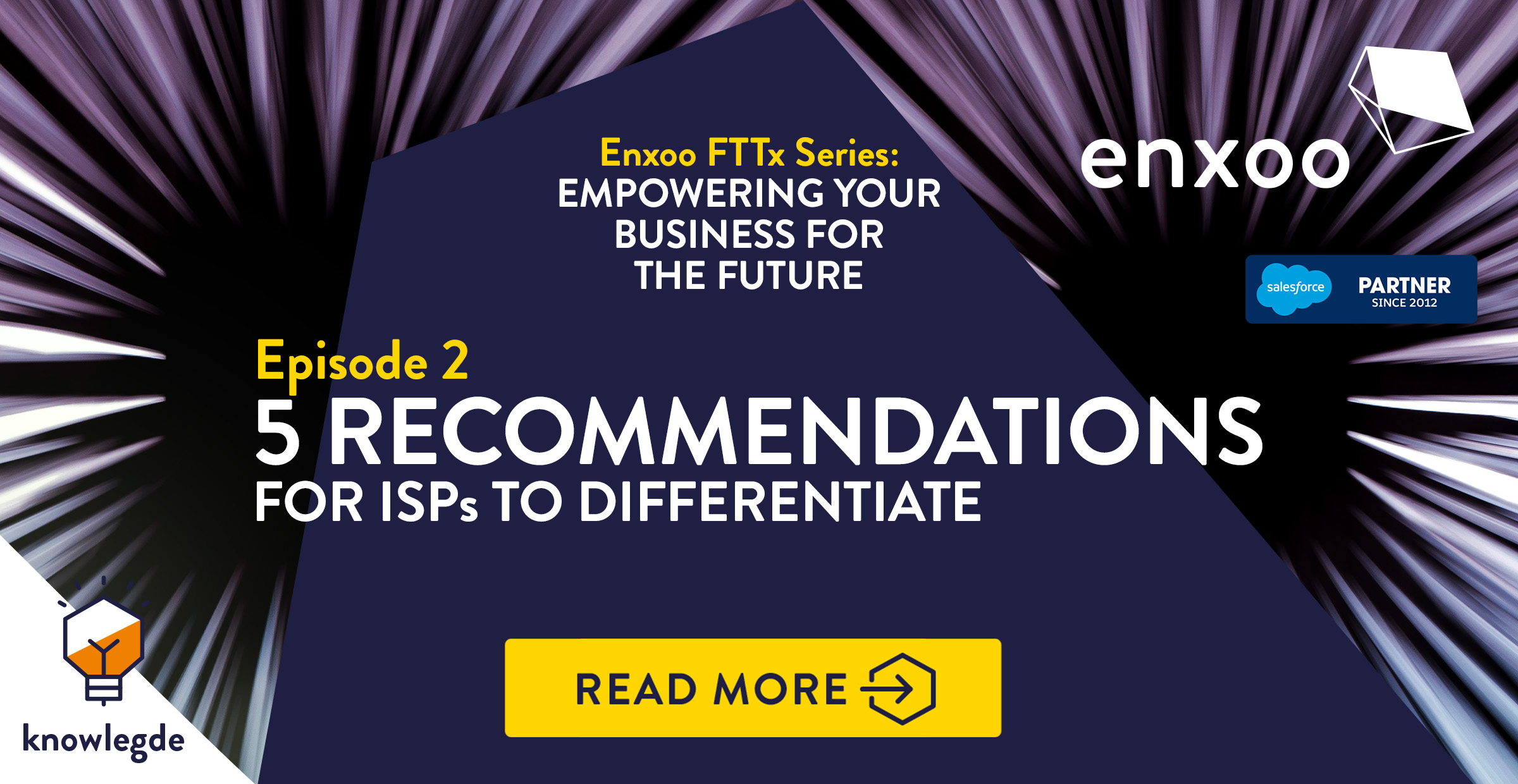In today’s fast-paced and highly competitive internet service provider (ISP) landscape, standing out from the crowd is crucial. To ensure long-term survival and sustainable growth, ISPs need to consider various strategies that will enable them to differentiate themselves effectively.
In this blog post, we’ll discuss five key recommendations for ISPs to distinguish and succeed in the market.
1. Enable Rapid Growth & Rollout:
ISPs looking to thrive must focus on rapid expansion and network outreach. This means continually investing in infrastructure and entering new regions efficiently. To differentiate in this aspect, ISPs should aim for economies of scale, which involves optimizing costs and resources. By achieving economies of scale, they can provide cost-effective services to a broader customer base, ensuring long-term survival in a competitive market.
2. Differentiate via Customer Service:
Providing exceptional customer service is a surefire way to set an ISP apart from the competition. ISPs should aim to deliver an omnichannel customer experience, making it easy for customers to reach out and receive support through various platforms, such as phone, email, chat, and social media. Quick and efficient deployment of field service personnel is essential to address technical issues promptly. By positioning customer service as a key differentiator and competitive advantage, ISPs can foster customer loyalty and attract new subscribers.
3. Leverage a Platform-First Approach:
Modern ISPs should adopt a platform-first approach by implementing a robust Business Support System (BSS) stack alongside a cloud-native architecture. This approach enables ISPs to seamlessly integrate their sales, service, marketing, and other functions, resulting in a streamlined end-to-end customer management process. Data transparency and visibility are also critical, as they allow ISPs to better understand customer needs, preferences, and behaviors, which can be used to provide tailored services and improve customer satisfaction.
4. Compete on Pricing Effectively:
Pricing is a significant factor that influences customer decisions in the ISP industry. To differentiate effectively, ISPs should aim to provide best-in-class pricing. This includes responding quickly to competitive pricing changes and ensuring sufficient market penetration in both low and high-end customer segments. Moreover, ISPs should be agile in their pricing strategies, offering innovative promotions and bundles to attract and retain customers. Competitive pricing is a powerful tool for attracting a wide range of subscribers.
5. Pivot to Best-in-Class Offering:
To differentiate themselves from competitors and capture a larger market share, ISPs should offer distinct product bundles that cater to different customer needs. By promoting premium offerings, ISPs can encourage customers to shift away from basic plans. This shift can be facilitated by extending personalized loyalty benefits and promotional offerings. The key is to provide value-added services and benefits that make premium plans enticing, fostering customer retention and upselling opportunities.
In conclusion, we recommend that ISPs invest in a modern, fully integrated, and cloud-native BSS to effectively differentiate themselves and thrive in the market. Differentiation is the key to long-term success, and these strategies will help ISPs stand out and meet the demands of their diverse customer base.
A BSS ecosystem like Salesforce enables ISPs to move with greater agility, access new tools and solutions quickly, and adapt no matter the market conditions. It gives ISPs increased control over their solutions and frees them to grow at their own pace.
Salesforce Industry Cloud specifically developed for the telecommunications industry will automate many processes across the Lead-to-Cash cycle to increase speed and efficiency while eliminating human error. It provides the foundation for delivering an end-to-end customer management process by leveraging Omnichannel Support, CPQ, Enterprise Product Catalog, and Digitally Guided Workflows.
Salesforce also seamlessly integrates with 3rd party systems like ERP, OSS, and billing solutions, and other Salesforce products like Marketing Cloud, Experience Cloud for customer self-service, Field Service, and various analytics tools for data-driven decision-making.
About Enxoo:
Enxoo provides telecommunications-specific digital transformation solutions based on Salesforce technology. As one of the fastest-growing independent Salesforce partners since 2012, Enxoo’s mission is to provide a combination of solutions and consulting services to optimize sales cycles, support growth & revenue, and improve operational processes. For more information, visit: enxoo.com
Stay in touch with us and sign up for our newsletter
We’ll send you our insights digest directly to your email inbox once every few weeks.



